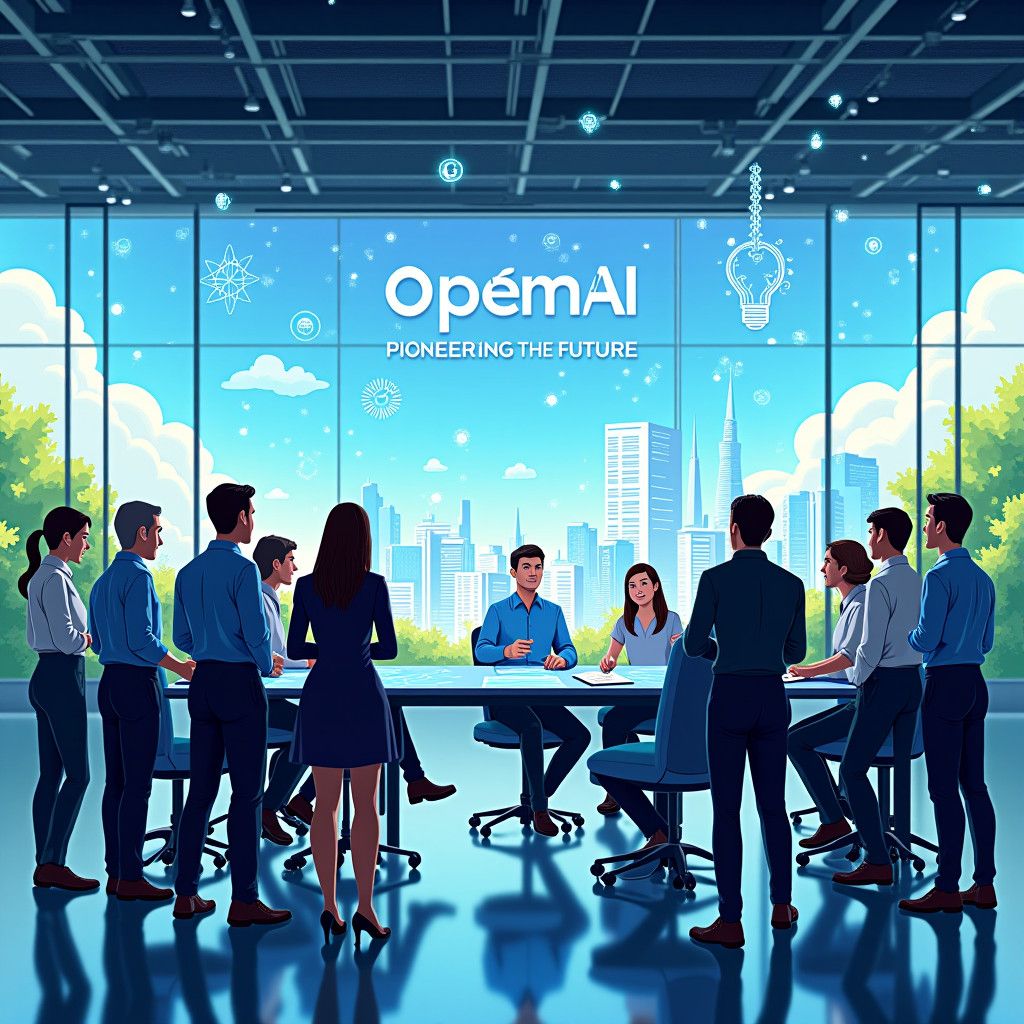In a world where innovation continually shapes the landscape of technology, the recent announcement by OpenAI regarding its conversion into a public benefit corporation has sparked considerable attention. This structural change signifies not just a new chapter for the organization, but also a pivotal moment in the ongoing conversation about the role of artificial intelligence (AI) in society.
The emergence of OpenAI as a frontrunner in AI research and deployment has brought its share of challenges, particularly concerning ethical considerations and responsible innovation. By transitioning to a public benefit corporation, OpenAI aims to address these challenges while enhancing its capacity for sustainable growth. Public benefit corporations, unlike traditional corporations, prioritize public welfare alongside profit, allowing for policies that are more aligned with societal values and ethical standards. This alignment is crucial in the field of AI, where the implications of technology can resonate broadly, potentially affecting millions.
The implications of this change become evident when examining the current landscape of AI development. In recent years, the rapid advancement of AI technologies has raised significant concerns about privacy, security, and ethical implications. Companies are under increasing pressure to navigate these challenges responsibly. This has led to calls for transparency and accountability in AI systems, which OpenAI now seeks to embody through its structural transformation.
OpenAI’s shift can be likened to that of other successful companies that have taken similar paths. For instance, Patagonia, an outdoor clothing brand, adopted a similar model to emphasize its commitment to environmental sustainability. By restructuring itself as a benefit corporation, Patagonia has demonstrated that profitability and social responsibility can coexist, a model that opens the door for businesses to redefine their success metrics.
Moreover, OpenAI’s decision resonates within the larger tech community, encouraging others to reconsider their operational frameworks. As AI systems empower various industries from healthcare to education, it is essential that organizations leading the charge are held to a higher standard of ethical conduct. OpenAI’s initiative may inspire other technology firms to adopt similar practices, driving a cultural shift in how the industry addresses societal concerns.
Investors, too, are likely to respond positively to this change. Growing interest in environmental, social, and governance (ESG) criteria in investment portfolios reflects a broader trend toward sustainable and ethically responsible business practices. OpenAI’s new structure may attract a competitive pool of investors who are eager to support innovations that align with social good. For instance, the educational technology sector has seen a significant influx of funding as investors recognize the profound impact of technology on learning and access to education. Investors are looking for companies that not only promise financial returns but also contribute positively to society.
While the ambitions of the public benefit corporation model seem appealing, some legal and corporate challenges loom for OpenAI. The regulatory landscape surrounding AI is still evolving, and navigating these legalities will be a daunting task as the organization attempts to balance profit motives with its public benefit commitments. OpenAI will need to work diligently to establish guidelines and practices that uphold both its ethical obligations and its financial sustainability.
Transparency will be critical in this transition. OpenAI plans to involve stakeholders—including employees, customers, and the communities it serves—in its decision-making processes. This participatory approach can provide valuable insights, allowing the company to remain responsive to both market needs and ethical considerations. By prioritizing open dialogue, OpenAI can build trust and enhance its reputation as a leading entity in responsible AI development.
In conclusion, OpenAI’s transformation into a public benefit corporation is monumental, not only for the organization itself but also for the broader tech landscape. This move signals an ambition towards greater accountability and ethical rigor in the realm of AI—all while recognizing the importance of societal impact. It challenges the traditional notion of corporate success and paves the way for a future where purpose and profit are no longer seen as mutually exclusive.
As the journey unfolds, businesses across industries should observe OpenAI’s actions closely, particularly how it navigates the intersection of profitability and public responsibility. The implications of such a transition will surely set a precedent for others, challenging them to adopt models that prioritize the common good in the age of technology.












